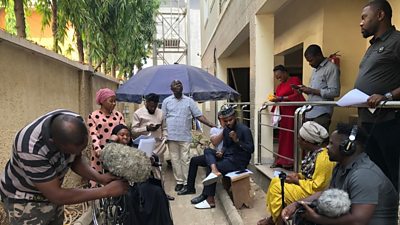Research summary
Publication: July 2023
±«Óătv Media Action conducted qualitative formative research among people with disabilities and non-disabled people in Kaduna and Borno states in Nigeria. It informed the production of our long-running Hausa radio drama âMadubiâ, social media content and other community level activities implemented by project consortium partner, Sightsavers. These addressed issues of inclusive family planning for people with disabilities.
With funding from the , the Disability Inclusive Development (DID) Inclusive Family Planning (IFPLAN) project seeks to contribute to the reduction of the unmet need for family planning and increase access to, and use of, available modern contraceptive methods by people with disabilities in Kaduna state mainly. This was tackled through mass media, community intervention approaches and capacity strengthening for media practitioners.
Key research findings:
- Accurate knowledge and use of family planning and modern contraceptives is low among respondents with disabilities across the board.
- Barriers to access and use of family planning services and modern contraceptives for people with disabilities include factors such as unvalidated family stories/rumours, linked marital status (being unmarried implies that there is no need for family planning), and religious views, among others.
- Motivating factors include the financial and perceived health benefits of using family planning and modern contraceptives.
- Decision-making is influenced by family members such as husbands and mothers-in-law, and community networks such as community leaders who give advice.
- Participants within different disability clusters, except for people with a hearing impairment, desired information about family planning services and modern contraceptives from radio, primary healthcare centres, and social media (mostly urban respondents). People with hearing impairment preferred to get information from their husbands (rural women), workshops, seminars, TV drama and short videos with subtitles, printed information and communication materials and through communication dialogue.
- Preferred formats across disability clusters are drama, public service announcements, hearing from religious and community leaders, real life stories and community dialogue.
- The research helped identify key profiles of people with disabilities and their influencers, who are likely to access and use family planning services and modern contraceptives or not. These include Faiza, a young mother with hearing impairment who wants to have more children and is looking to space them but does not have the right information about family planning, except from friends and family; Abu, a person with visual impairment who is averse to family planning, believes children are from God and measures should not be put in place to delay getting pregnant, among others. These profiles were used to develop characters in a radio drama with some of them directly moved into the drama world as they are.
No... family planning is not something we discuss publicly unless the person is close to us, it is something we keep as a secret.â
Key implications:
- Mass media has a role to play in addressing family planning related issues for people with disabilities for its reach with mass audiences.
- Media practitioners interviewed reported that media has the potential to encourage people with disabilities to use and access family planning services and modern contraceptives by creating relatable programmes.
- Leveraging radio drama with interesting and true-life stories has the potential to encourage access to and use of family planning services and modern contraceptives among people with disabilities.
Full details of the research can be found in the summary above. For further information, please contact ±«Óătv Media Actionâs Head of Research and Learning, Nigeria: anu.njamah@ng.bbcmediaaction.org.
Our research library
-
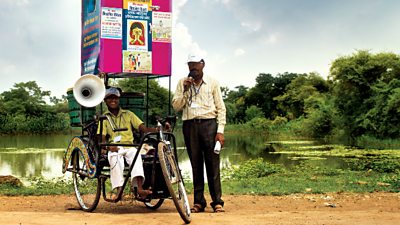
Long reads
Read our comprehensive research reports of the evidence behind our work. All of our publications are freely available to download. -
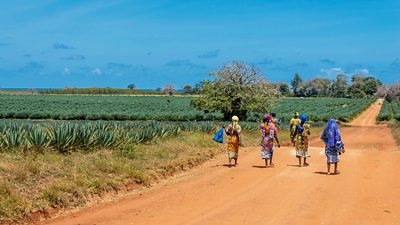
Short reads
At a glance, explore key findings and evidence behind our work. All of our publications are freely available to download. -
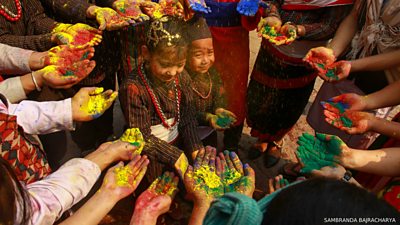
By country
Explore our findings and analysis country by country. All of our publications are freely available to download. -
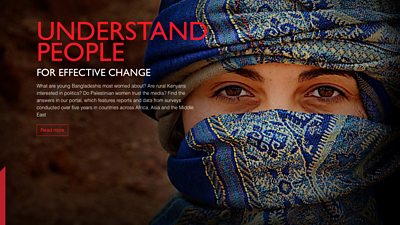 What are young Bangladeshi's most worried about? Are rural Kenyans interested in politics? Do Palestinian women trust the media? Find the answers in our data portal (last updated 2020).
What are young Bangladeshi's most worried about? Are rural Kenyans interested in politics? Do Palestinian women trust the media? Find the answers in our data portal (last updated 2020).
